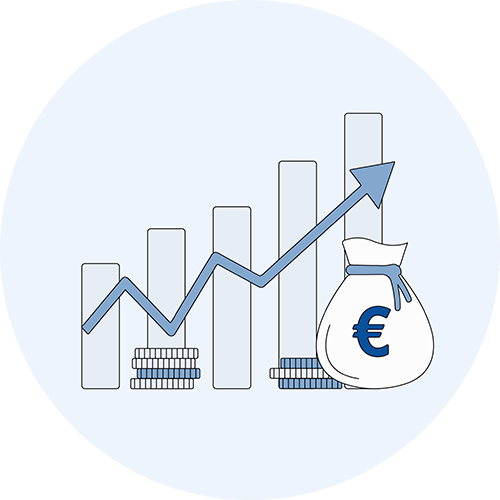EDUCAZIONE FINANZIARIA
Comprendi
l'Economia e la Banca
Crediamo che un depositante informato sia un cittadino migliore e un risparmiatore più consapevole e fiducioso nel sistema bancario. Scopri i concetti chiave, dai rudimenti della moneta al funzionamento della tutela dei depositi. Diventa più consapevole delle dinamiche economiche che influenzano la tua vita quotidiana.
Scarica il Manuale "Pillole di economia e banca spiegate dal FITD"
Moneta
Risparmio
Investimento
Inflazione
Spread
Banca
Tutela dei depositi
Unione bancaria
BCE e politica monetaria
Criptovalute
Moneta | Risparmio | Investimento | Inflazione | Spread | Banca | Tutela dei depositi | Unione bancaria | BCE e politica monetaria | Criptovalute

Investments
